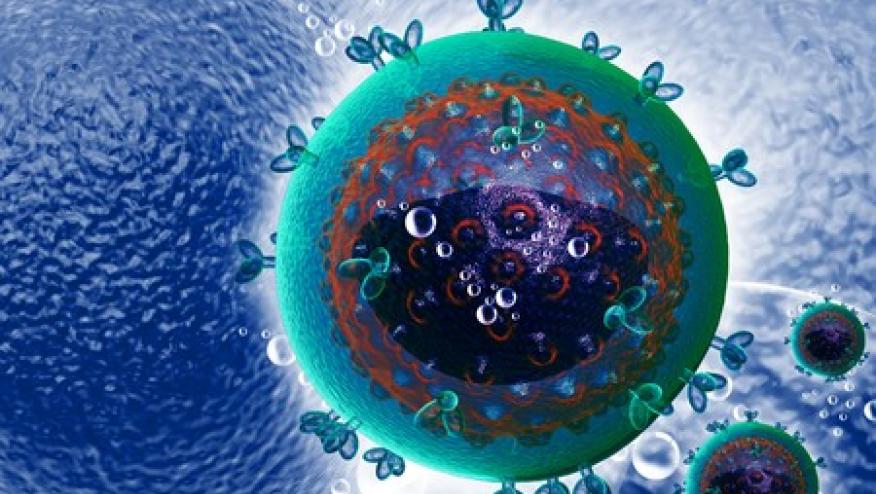COVID-19 Susceptibility: Why Do Some Become So Ill? Save

Why are some people with the SARS-CoV-2 coronavirus that causes COVID-19 so ill while others barely notice the infection?
Certainly, this question has crossed almost everyone's mind. For years, health practitioners faced (and still face) a similar situation with a different global infection: tuberculosis. Like SARS-CoV-2, not all the 10 million individuals infected annually develop life-threatening disease. Most, in fact, remain asymptomatic.
This observation, referred to as "differential susceptibility," is known to be attributable not only to socioeconomic factors (which clearly play a role), but also to genetic differences (otherwise known as genetic polymorphisms) that together with environmental factors, human-virus interactions, gender, perhaps blood type, and age-related senescence determine the immune response and the likelihood of developing disease.
The idea that one can boost their immune system and ward off illness by using daily supplements including vitamins C, D, and zinc is often touted by health-food and vitamin advocates, but unfortunately, this has yet to be proven. To the contrary, the immune response is more a consequence of which variant of gene coding for proteins and receptors an individual inherited from his or her parents. In reality, susceptibility and response to infection is most likely determined at conception.
In a 4-hour joint webinar between the American College of Cardiology and the Chinese Cardiovascular Association on COVID-19, it was observed that efficacy of antiviral therapy once the disease was fully established was unclear. Some clinicians suggested that the injury to the lungs, although triggered by the virus, is exacerbated by the patient's immune response. That is, whereas the response to infection is normally a complex, tightly orchestrated, and self-limited interaction, perhaps (due to differences in genetics) the immune response in the sicker patients is inappropriately too aggressive, or too persistent despite viral clearing, thereby further exacerbating the injury. We do not know.
What we do know, to paraphrase Yogi Berra, is that you can learn a lot by just observing. The 10% SARS-CoV-2 death rate in Northern Italy and the Italian-American family in New Jersey, in which four of 11 family members died and two more were hospitalized in critical condition, further suggests that the virulence of the virus is patient-dependent; that is, genetically determined.
While the situation in Italy is certainly tragic, much will someday be learned from their experience. It may be true that their healthcare infrastructure has been overburdened by this infection, but the question that will ultimately need to be answered is why are some patient cohorts and ethnicities having a greater problem with this virus than others? What is it about the population in Italy and their genetic make-up (beyond merely age) that explains a fatality rate seven to 10 times that in the United States and Germany?
In the short term, it is certainly incumbent upon us, as physicians, to expeditiously develop algorithms to help predict which COVID-19 patients are most at risk for developing an aggressive and downhill course versus the 80% of patients who experience only minor self-limited upper respiratory tract symptoms. In the long term, however, we need to better understand "differential susceptibility" within a population, not only for SARS-CoV-2, but for all infections, both known and yet to be encountered.
It is becoming increasingly apparent that this infection will not disappear like the "dogwood blossoms in a late spring rain and the disappearin' bubbles in a glass of champagne." Nonetheless, the key message not to be lost in this time of global anxiety is that even without algorithms and disease-targeted therapy, most individuals infected with SARS-CoV-2 will not become critically ill, will not require hospitalization, and will not die. Over time, as more people are tested, the true fatality rate will become known. It will likely be even lower than the 1.0% to 1.5% presently being quoted
Amongst the many reasons that public health experts and officials are so concerned is that the time scale of this highly contagious virus, which may infect more than 50% of the population, has been compressed into weeks rather than months, and has stressed, if not overwhelmed, the resources of our healthcare providers and facilities. One thing is certain: if we are prudent and responsible, we will eventually retrospectively focus on what could have been done differently to prepare, and use the lessons learned from this experience to proactively identify strategies for the next pandemic.
Let us hope that this crisis is semi-successfully navigated due to prudent leadership and timely intervention by public health experts and public officials on a national and regional level. If so, we will applaud their responses. We might even be willing to acknowledge that a trove of information will have been gleaned about animal-to-human transmission of viral illnesses, the concept of "differential population sensitivity," and the key roles genetics and age play in susceptibility to disease.
For now, however, we must acknowledge that we are in the midst of a worldwide health and economic crisis and the proper message, beyond being prudent and washing one's hands, is one of patience and reassurance. People will get sick, people will get better, and as Annie said, "The sun will come out tomorrow." And on that, you can bet your bottom (or maybe last) dollar!
Mark Jay Zucker, MD, JD, is a transplant cardiologist at RWJBarnabas Health in Newark, New Jersey, and clinical professor of medicine at Rutgers University-New Jersey Medical School. He is also vice chair of the Cardiovascular Network of the American College of Chest Physicians.










If you are a health practitioner, you may Login/Register to comment.
Due to the nature of these comment forums, only health practitioners are allowed to comment at this time.